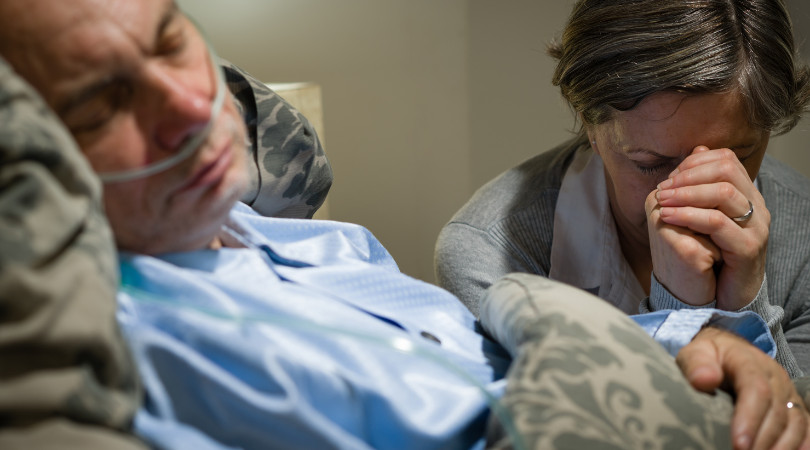How Hospice Supports Patients with Sepsis

When an infection in the body is not treated properly, sepsis can occur. Sepsis is dangerous for anyone, but when a patient already facing a serious illness contracts sepsis, it often leads to further decline. Hospice care can provide comfort and support to terminally ill patients who wish to spend their remaining time at home with their families.
What is Sepsis?
Sepsis is a potentially life-threatening medical condition that occurs when the body's immune system goes into overdrive, releasing chemicals into the bloodstream to fight the infection. These chemicals can cause inflammation throughout the body, leading to a variety of symptoms and potentially severe complications.
Sepsis can develop as a result of any type of infection, including bacterial, viral, or fungal infections. Common sources of infection that can lead to sepsis include pneumonia, urinary tract infections, skin infections, and abdominal infections. Sepsis can affect anyone, but it is more common in people with weakened immune systems, such as older adults, infants, and people with chronic illnesses.

How Hospice Supports Patients with Sepsis
Hospice care can be an important resource for patients with sepsis and their families, offering specialized support and comfort during this challenging time.
Hospice care for patients with sepsis focuses on providing comfort and symptom management. This includes addressing pain, fever, and other symptoms. Hospice professionals are trained to provide expert symptom management, ensuring that patients with sepsis receive the medication and care they need to alleviate their symptoms and improve their comfort. Hospice care also includes emotional and spiritual support for patients and their families, helping them cope with the stress and uncertainty that comes with a serious illness.
Sepsis can cause significant physical and emotional distress, and many patients may feel helpless or powerless in the face of their illness. Hospice care provides patients with the support and resources they need to maintain their dignity and independence as much as possible. This includes assistance with activities of daily living, such as bathing and dressing, and encouraging patients to participate in activities that bring them joy and fulfillment.
Another important aspect of hospice care for patients with sepsis is educating and supporting their families. Sepsis can be a complex and challenging condition to manage, and family members may feel overwhelmed or unsure of how to best support their loved one. Hospice professionals can help families understand the disease process, anticipate potential complications, and develop strategies for managing symptoms and providing emotional support. They can also provide guidance on end-of-life planning and assist families in making difficult decisions about care.

We’re there when you need us most.
Hospice care for patients with sepsis is designed to provide comfort and support during the dying process. Hospice professionals are trained to provide compassionate end-of-life care, ensuring that patients are as comfortable and pain-free as possible during their final days. They can also provide emotional support to family members, helping them cope with the grief and loss that comes with the death of a loved one.
Not sure if it’s time for hospice? Take a patient quiz to help determine if hospice care may be the right choice for you or your loved one.
At Crossroads Hospice & Palliative Care, we strive to always be at the patient’s bedside in their final moments with our Evenmore Care program. When our team sees signs that the patient is declining more quickly, this program allows us to keep a member of our staff at bedside to support the patient and their family through this final transition.
Crossroads is available 24 hours a day, 7 days a week, 365 days a year to admit patients and provide care. To learn more about our services and how we support patients with sepsis, please call 1-888-564-3405.
If you found this information helpful, please share it with your network and community.
Copyright © 2023 Crossroads Hospice. All rights reserved.




